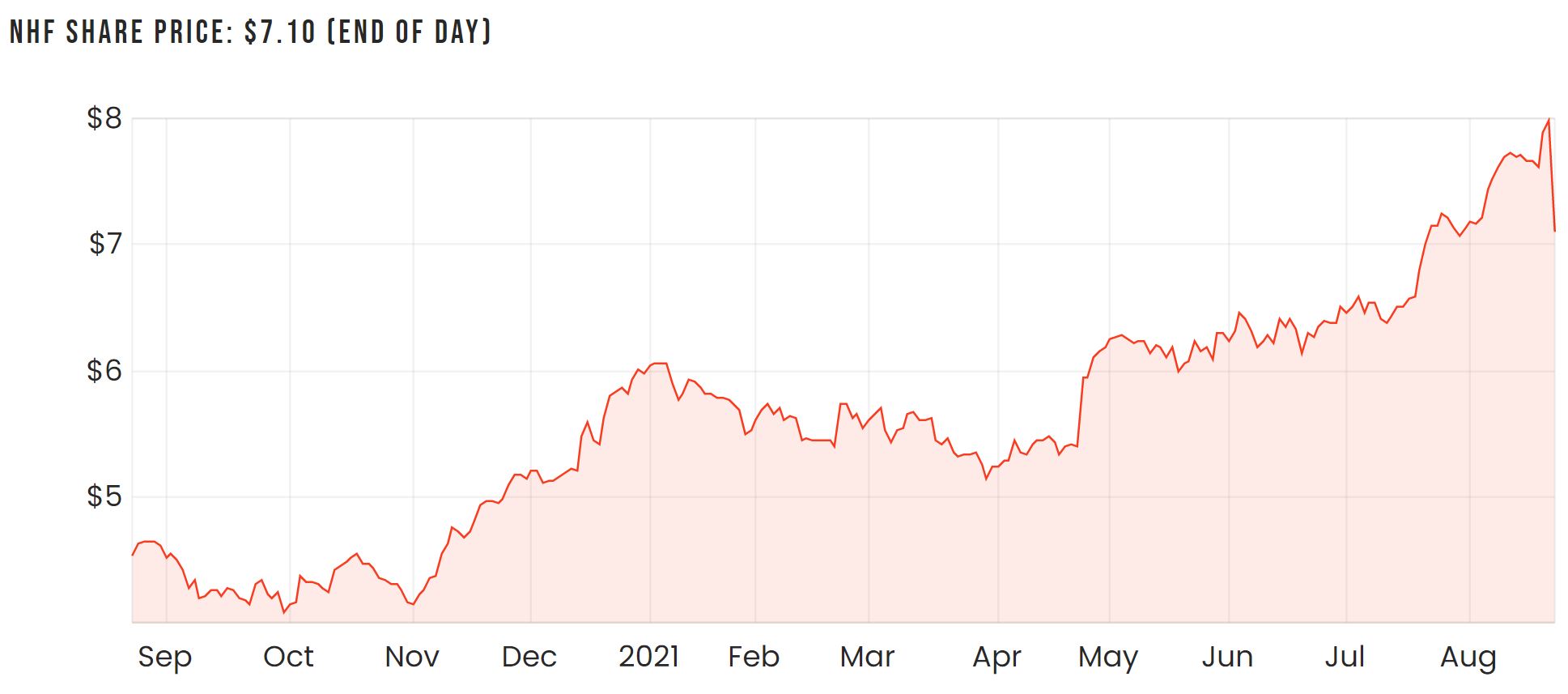Today, private health insurer NIB Holdings Limited (ASX: NHF) released its full-year results. Despite a lift in profits and a record high dividend, the market reacted negatively to the update, with shares finishing over 11% lower by the day’s close.
To read the full update, click here to read my colleague, Jaz Harrison’s article: FY21 report: The NIB (ASX: NHF) share price is sinking.

Results recap
At face value, NIB’s full-year results didn’t look too bad.
Group revenue was up 2.9% and disciplined cost control saw total expenses reduce by 8.8% to $362.1 million.
Underlying operating profit (UOP) came in at $204.9 million, up nearly 40% from FY20. This was toward the lower end of guidance, however, as management was expecting between $200 million – $225 million.
On the bottom line, earnings per share (EPS) jumped over 82% to 35.2 cents per share. The board then declared a final dividend of 14 cents, bringing the FY21 full-year dividend to 24 cents per share.
Challenging outlook
Like many other companies affected by COVID-19, the uncertain timeframe around international travel bans continues to act as a damper on NIB’s market valuation.
NIB’s travel segment reported a 74.1% drop in operating income to $14 million. While management expects a recovery as the country reopens, the timeframe on this is largely unknown.
Travel bans are also affecting its international inbound health insurance (IIHI) segment. Less international students entering the country is a headwind that’s likely to continue for the remainder of CY21.
Here in Australia, NIB is expecting Australian residents health insurance (ARHI) policy growth between 2% – 3% for FY22. This segment will likely face more challenges if there are more changes around elective surgery.
What to do with NIB shares?
I tend to agree with management around the longer-term recovery of the business. The opening of international borders will be the major catalyst that will likely cause an uptick in most parts of the business.
If you’re patient, I can partially see the appeal of getting in at these levels to capture some of this value.
Notwithstanding COVID, however, insurance can be a tough space to be in. With so many companies on the ASX, I think there are better opportunities elsewhere.
If you’re interested in finding out more, I’d recommend signing up for free Rask account. Click this link to join for free and access all of our free analyst reports.










